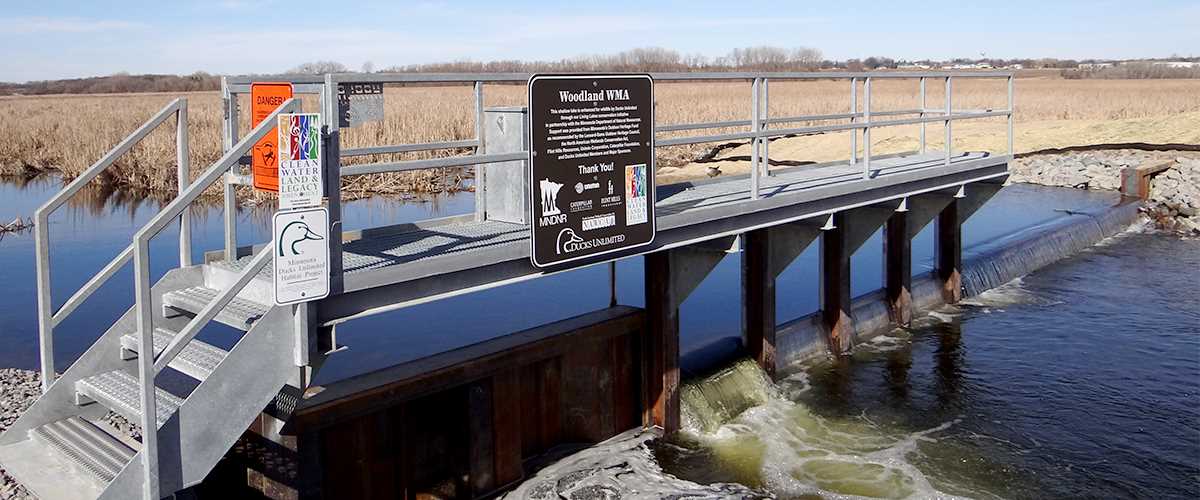DU enhances two popular wetlands near Twin Cities
Shallow lake wetland enhancement projects to benefit wildlife and outdoor recreationists
Shallow lake wetland enhancement projects to benefit wildlife and outdoor recreationists

Woodland Wildlife Management Area is set for healthier habitat thanks to new infrastructure.
Ducks Unlimited completed two more shallow lake wetland enhancement projects to benefit wildlife and outdoor recreationists on the western edge of the Twin Cities Metro Area.
The projects in Wright County include a 611-acre wetland basin on Woodland Wildlife Management Area and a 53-acre basin on Victor Waterfowl Production Area. These large wetland habitats are important waterfowl nesting and spring and fall migration food sources. The projects are a close drive for waterfowl hunters and birders from the Minneapolis/St. Paul region.
These projects complement past shallow lake enhancement work completed by Ducks Unlimited in partnership with the Minnesota Department of Natural Resources in Wright County, including 48-acre Henry Lake near Albion, 330-acre Smith Lake near Howard Lake, 149-acre Malardi Lake near Montrose and 3,765-acre Pelican Lake near St. Michael.
These conservation projects create a cluster of enhanced shallow lake habitat completed through DUs Living Lakes Initiative.
Woodland Wildlife Management Area project Located on the southeast edge of Montrose and known locally as Montrose Marsh, Woodland WMA is owned and managed by the Minnesota DNR. Ducks Unlimited helped replace aging water management infrastructure to provide optimal wetland habitat for waterfowl and other wildlife.
Victor Waterfowl Production Area Victor WPA is southwest of Howard Lake and is managed by the United States Fish and Wildlife Service. It had poor water quality and habitat because of invasive fish and stagnant high water levels. DU engineered and installed new water level management infrastructure which allows managers to provide optimal conditions for reducing invasive fish and encouraging natural vegetation. Vegetation responded quickly, and the basin has been used by many waterfowl including more than 70 trumpeter swans at one time. The basin is used by a variety of duck species such as mallards, canvasbacks, pintails and lesser scaup.
Funding was provided through private donations to Ducks Unlimiteds Living Lakes Initiative, which in turn helped DU leverage the Outdoor Heritage Fund appropriation as recommended by the Lessard-Sams Outdoor Heritage Council and a federal North American Wetland Conservation Act grant.
Ducks Unlimited uses cookies to enhance your browsing experience, optimize site functionality, analyze traffic, and deliver personalized advertising through third parties. By continuing to use this site, you agree to our use of cookies. View Privacy Policy